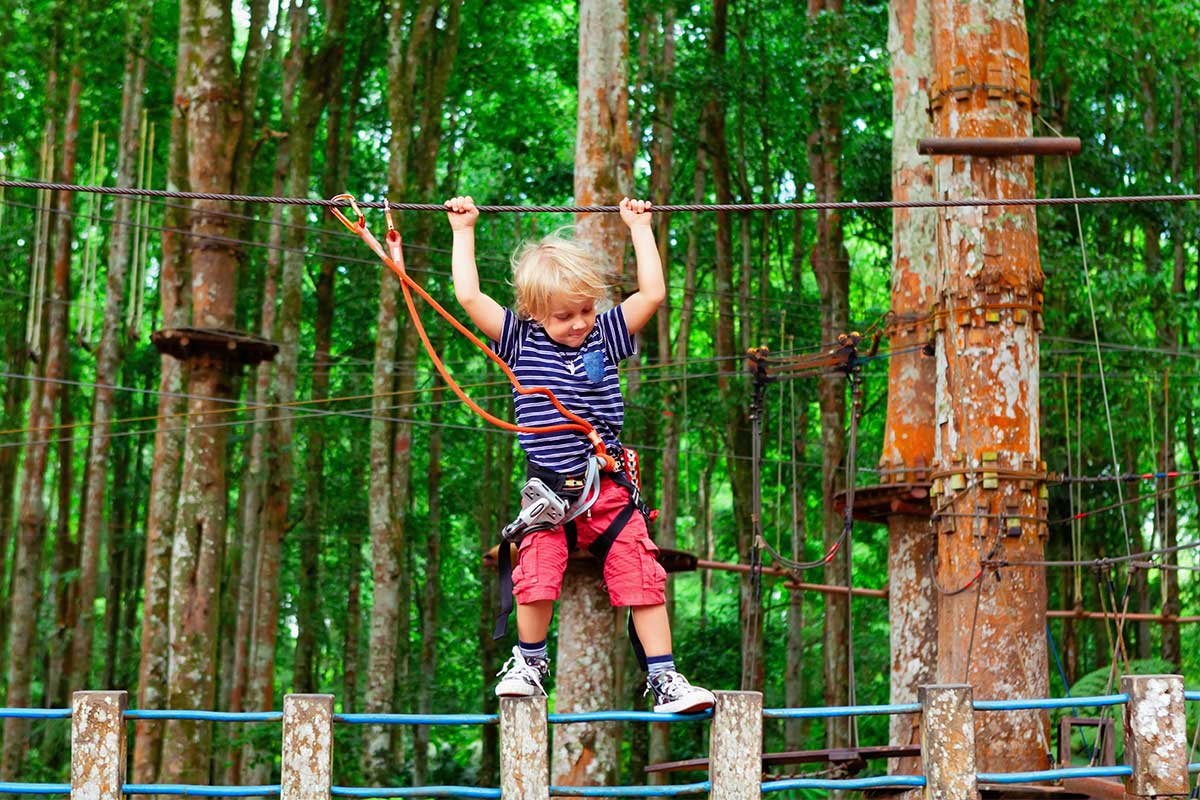
Endless summer? Nah, it only feels that way when you’re trying to fill it with experiences that will keep your kids fulfilled and enriched throughout the dog days. And while it might never feel normal to map out your kids’ entire summer before mid-March hits, here’s something that might make you feel a bit better about it: a massive list of camps chosen by our readers as the best of the best.

Camp Friendship
If you closed your eyes and conjured up a classic sleepaway camp, it probably looks a lot like Camp Friendship. Family owned and operated since it opened in 1966, the 500 or so acres near the Blue Ridge Mountains feature scenic forest, wide-open spaces, a lake, access to the Rivanna River and, according to camp director Ashleigh Ninnis, an incomparable view of the night sky.
“The stars are incredible here because we’re fairly removed from just about everything,” Ninnis says. “The closest town is Charlottesville, and that’s 25 miles away.”
Cabins are rustic and it’s a tech-free camp, but this all-American experience is quite the draw for kids and counselors from all over the world, including China, France, Spain, Russia and New Zealand. “It’s like a mini United Nations every week,” jokes Ninnis.
Activities are chosen by the kids after they arrive at camp, so they can decide which things they’d like to explore without any pressure from parents. The 35 or so activities include archery, pottery, ropes courses, sports, performing arts, wilderness survival and even Aqua Zumba. Horseback riding is also big here, with an equestrian center housing more than 80 horses, and all kids get to enjoy the canoeing, kayaking, stand-up paddleboarding, rope swinging and the high dive in Friendship Lake.
Right about now, you’re probably thinking, “Sign me up!” You’re not alone. So many parents said that very same thing when dropping off their kids that Camp Friendship kicked off spring and end-of-summer family camps a few years ago “for anyone of any age to experience the magic of camp.”
See our list of the best traditional summer camps here.
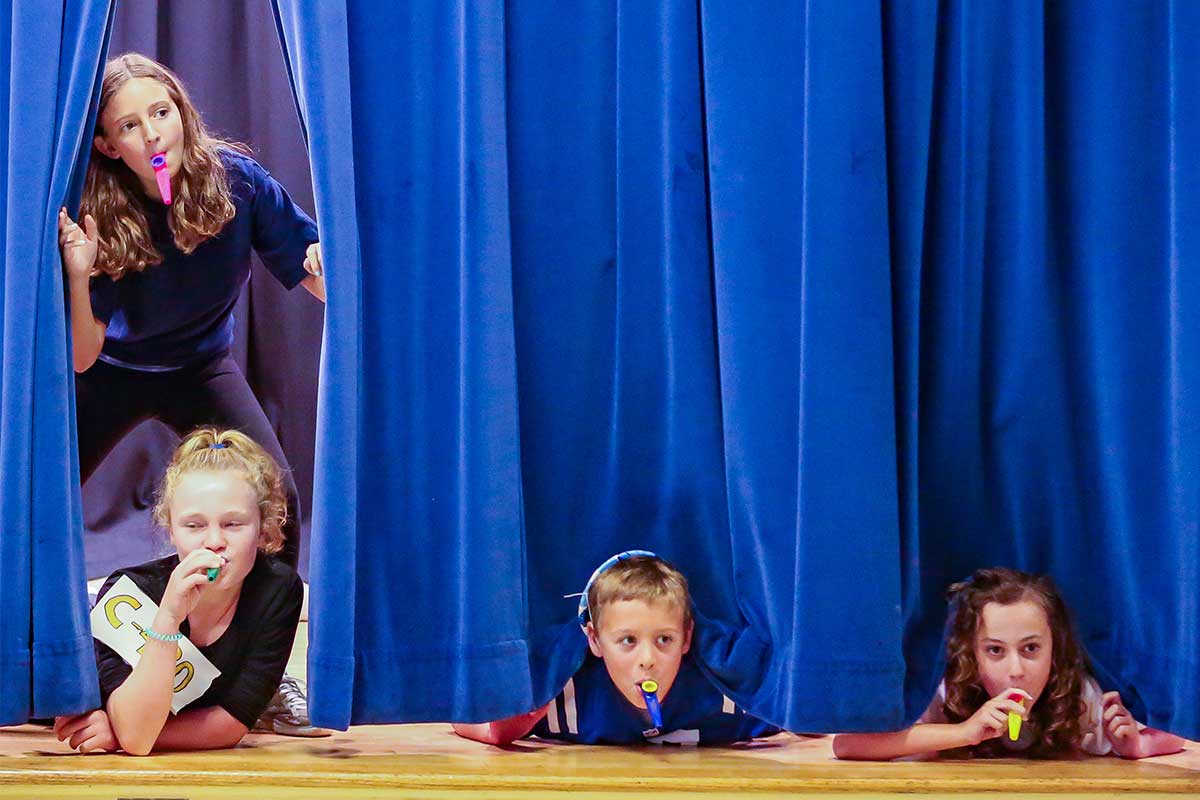
Mount Vernon Community Children’s Theatre
When one camp teacher found out there would be a Musical for Theater on the High Seas theme for one week last summer, she got the bright idea to create Sharknado: The Musical—modifying pop songs with under-the-sea-inspired lyrics.
This ability to match silliness with expertise is what makes Rachel Witt-Callahan, the camp’s longtime director of education, so confident about what makes Mount Vernon Community Children’s Theatre so special: “Our teachers, definitely,” she says.
“They’re so enthusiastic and excited,” Witt-Callahan says, noting that they work hard to hire teachers with backgrounds in both theater work and childhood education. “They make it relaxed, yet fun, and still educational. The kids do such a good job with the final performances, and sometimes they’re the funniest thing in the world. But our teachers are the linchpin to that.”
Witt-Callahan says campers spend the day both inside and outside, where there’s a shaded playground and a couple of picnic tables where kids like to eat their lunches. Mornings are devoted to drama, while afternoons bring musical theater, which has been responsible for more than a few earworms.
“The older kids, they love coming up with silly alternative words to popular songs,” she says. “We can’t get them to stop singing—even during lunch, they’ll just keep going. One child brought their ukulele last year and learned how to play the songs on the ukulele.”
Camp weeks here culminate in a Friday student performance, of course, which the older kids might have written themselves and the teachers mold into something coherent. And, of course, the staff usually has to handle a case or two of stage fright.
“It’s all about finding what works for a particular child,” Witt-Callahan says of making kids feel comfortable on stage. “Every once in a while, we get a kid that just doesn’t want to be on stage. … They can help make costumes, scenery pieces and props.”
Want to see more art camps? Click here.
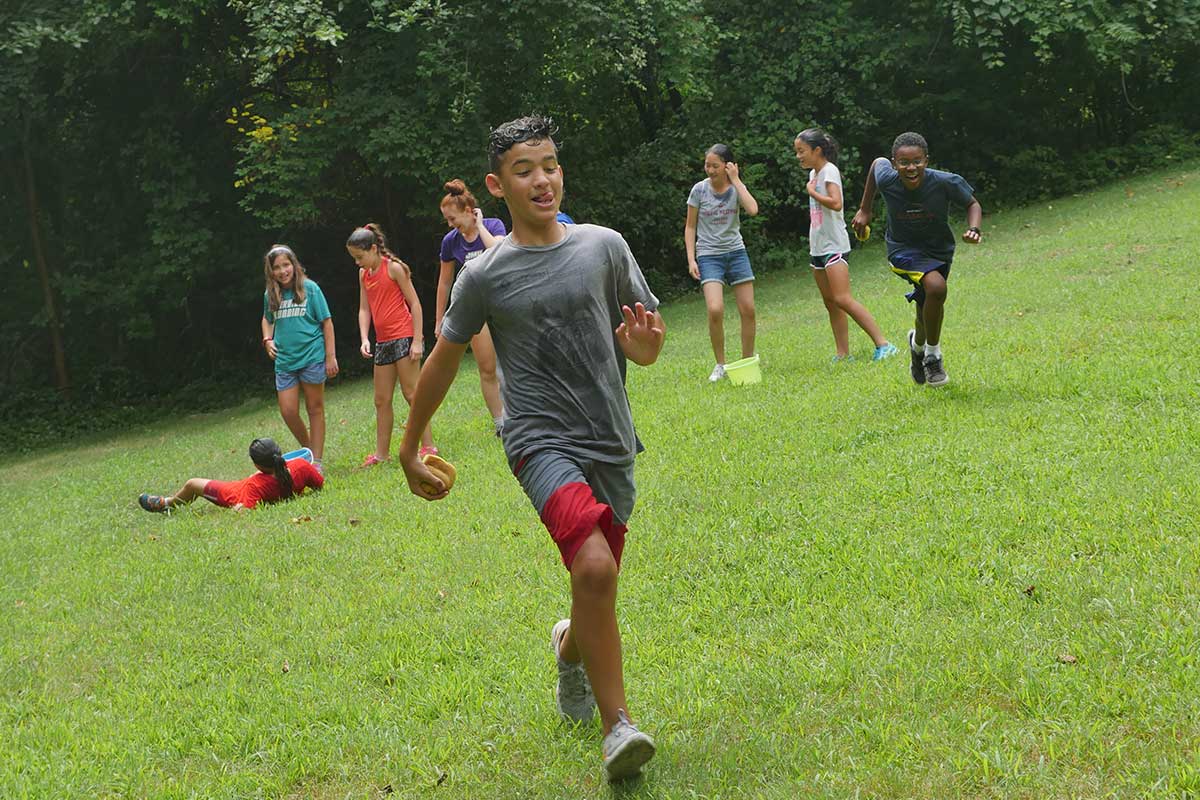
Summer Cove
We have three words for you: Zombie Apocalypse Camp. That’s right, your darling middle school child—the one whose fuzzy baby head smelled so good and the one you nursed back to health during every bout of strep—is now old enough to learn how to survive an attack of the undead. And guess what? It’s incredibly popular.
“Zombie Apocalypse was the first camp I was inspired to create,” says camp director Megan Zinn. “It’s centered around this culture that is really obsessed with the undead. I love zombie movies, and this is trying to get into the mindset of what would happen if there was a zombie apocalypse.”
The camp teaches survival skills like rope tying and Nerf gun battles, shelter-building and mapping—all while playing games and having fun.
If zombies aren’t your kid’s jam, there’s also a Disney-themed camp, technical camps for teens interested in film producing or photography and an animation camp, among others. But what all the camps here have in common is that they’re geared specifically toward middle schoolers.
“They either get lumped in with the younger kids and they don’t feel like they can have fun there, or lumped in with the older kids and they definitely don’t fit in there,” Zinn says of why this age group is important to target. “They feel like they can be themselves, grow and develop different passions. We let this age group explore and see what kinds of things they might be interested in.”
The Harry Potter-themed camp sorts kids into two houses that compete for house points throughout the week.
“Whichever team has the most house points wins—but everybody gets butterbeer,” Zinn says.
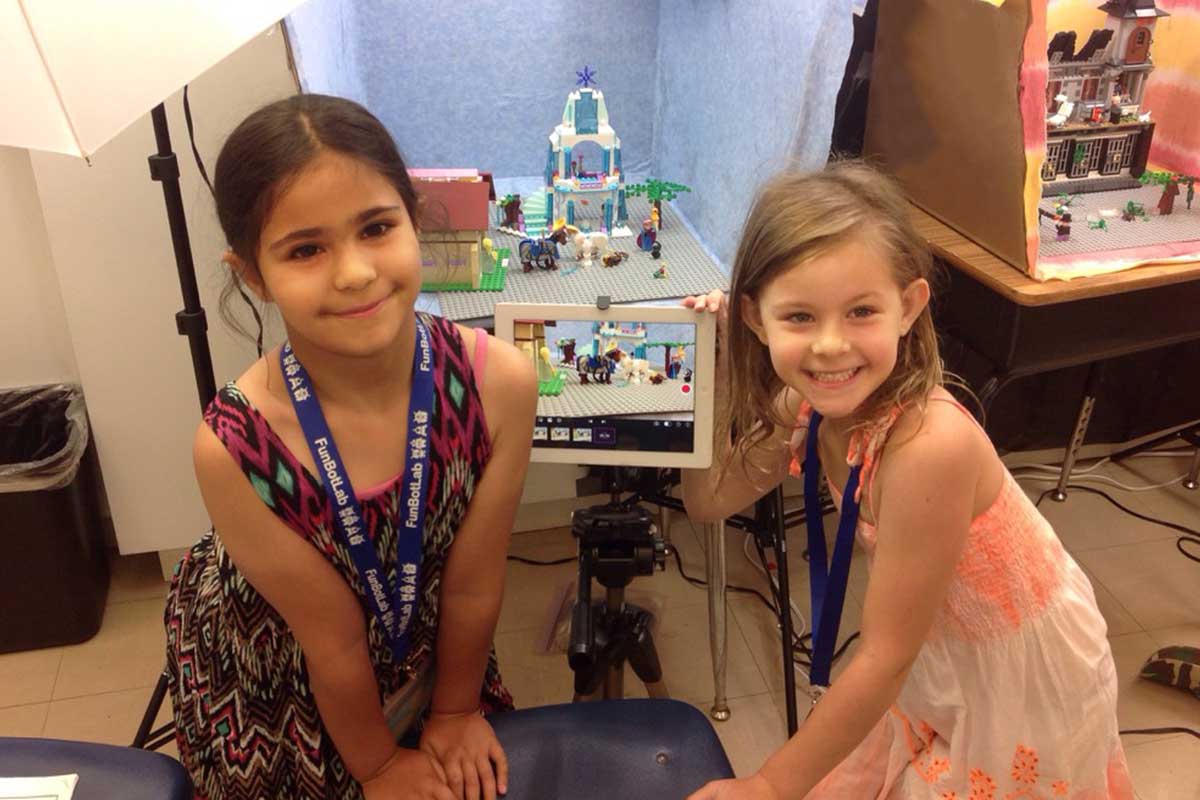
Fun Bot Lab Robotics & Media Camp
Tennis and robotics aren’t generally two things that go together, but Fun Bot Lab Robotics & Media Camp has scheduled a pilot program for this summer allowing campers the option of pairing a half day of Fun Bot with an afternoon of tennis instruction from TopNotch Tennis.
“We have a lot of overlap with their kids and our kids,” says Courtney Brown, Fun Bot’s director of operations and marketing.
Those who just want to dig into robotics and media can do that, too. The camp is broken into five different labs aimed at engaging kids with building, scratch programming and digital media. Brown says it’s pretty amazing watching a rising kindergartner command a robot to pick something up and bring it back. Kids also have the opportunity to play on the playground, and the camp sets up water sports outside twice a week.
“If you’re going to be doing all this mind work, you should do some physical stuff, too,” says Brown.
While the kids are having fun using their robots to complete a (pretend) mission or engage in a game lab like sumo wrestling, they might not realize there’s a message behind the magic. “We encourage kids to express themselves in their builds. We want them to be creators, not just consumers,” says Brown. “[Founder] Timothy Burns created this camp so kids didn’t just sit in front a screen, but to know what went on behind it.”
She says the camp often hires college students majoring in each skill area, plus group leaders with backgrounds in education to minimize frustration.
“We have a very low child-to-teacher ratio—two people with them all the time,” Brown says. “It just makes for a great dynamic because you don’t get frustrated kids, which is so often the case with programming.”
See more educational summer camps here.
Have a child with special needs? Check out these summer camps.
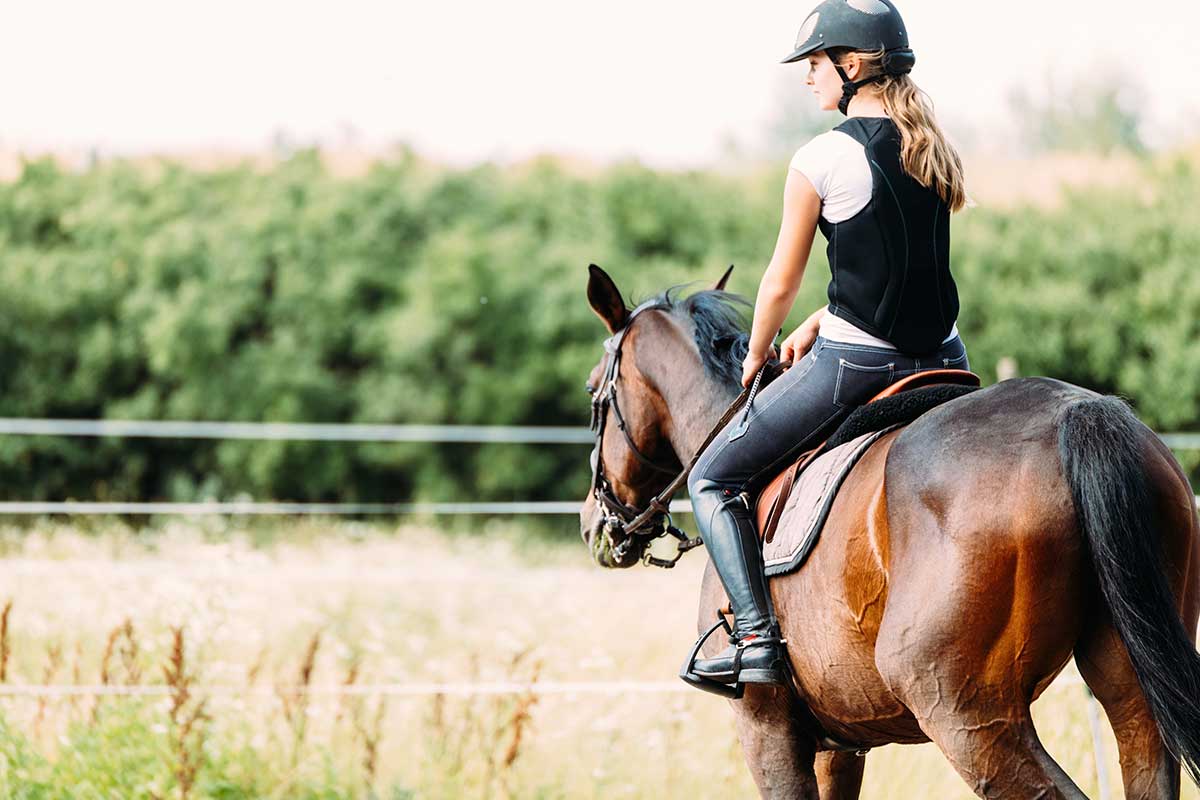
Mulford Riding School Summer Riding Camp
The thing camp owner Harry Mulford loves most about running his horseback riding summer camp is the fact that what he’s teaching kids often has very little to do with actually getting on a horse.
“Working with horses and being around horses, you’re learning a lot more than just riding,” says Mulford, whose parents founded the camp in 1960. “You’re learning patience, determination, a lot more values that cross over.”
Meanwhile, kids are also learning the basics of caring for and riding a horse, along with a few tricks they can brag about when school starts.
“They get at least an hour to ride, then another hour of everything off the horse you need to learn—the grooming, the tacking up,” Mulford says of a typical day. “The learning aspect of it, we turn into games, that way they have fun while they’re doing it. We also do a little bit of vaulting, roping and a little bit of mounted archery.”
What’s vaulting, you might ask? Oh, that’s just when your child learns to do gymnastics on a moving horse. No big deal. “Just getting up on the horse and standing up with their arms out and the horse moving—it’s thrilling,” he says.
But, he adds, the kids would probably list something far less adventurous as their favorite part of the camp. After a few days of practice, Mulford says, the horses start responding to campers’ commands and communication.
“That’s better than anything for them,” he says. “When they get it, then you see the big smiles. It builds up their self-esteem, builds their character—that’s probably the most important thing.”
See a list of all the best sports camps in NoVA here.
This post was originally published in our March issue of the print magazine. Want to get our magazine in your mailbox? Subscribe here.




